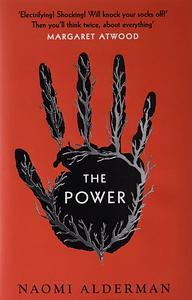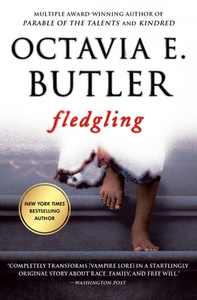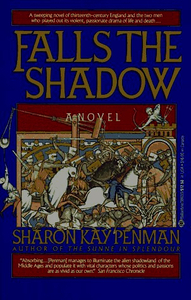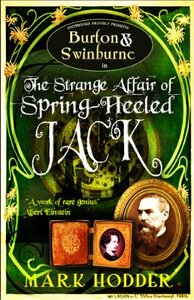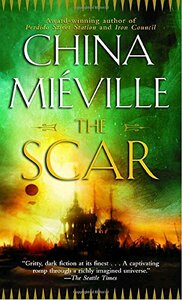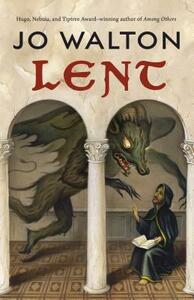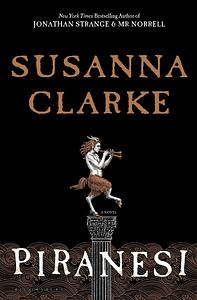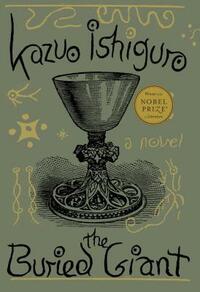You need to sign in or sign up before continuing.
Take a photo of a barcode or cover
specs's Reviews (135)
I'm trying to think of something to say that's generous to the author and sensitive the dumpster fire that is 2019 and also smart enough stand up to arguments but it comes down to this: I do not agree that power corrupts or that the abused will become their abusers.
Also I couldn't enjoy the entire back half because I kept imagining MRAs reading it and adding it to their "women are powerful monsters who must be controlled and/or killed" evidence.
I did not enjoy this book. Thank you for coming to my TED Talk.
Also I couldn't enjoy the entire back half because I kept imagining MRAs reading it and adding it to their "women are powerful monsters who must be controlled and/or killed" evidence.
I did not enjoy this book. Thank you for coming to my TED Talk.
I can't quite put my finger on why I didn't love this. It was trying to say interesting things about power, race, gender, and community, but those things didn't seem to amount to much. Possibly because I'm white? (This wasn't written for me and that's fine!) I did like some of the additions to the vampire mythos, in particular:
- that not being a ble to go out in the sun is a *bad* thing that they would seek to overcome using modern medical science
- that they build their own communities with mortal thralls instead of being loners
- racists are everywhere, including in vampire communities, no *especially* in vampire communities where individuals were alive during some pretty hateful periods and events in human history
So, all that is great, but I wasn't really moved by Shori. I wasn't really rooting for her so much as I was reading to learn more about how Butler was playing with the standard vampire legend.
And since everyone's commenting on the sex scenes -- yes they were uncomfortable, but that's the point? They weren't so long and explicit that I threw my book down in horror or skipped them, but rather read them thinking "yes, I see what she's doing here and it is successful."
Really wish I'd liked this more.
- that not being a ble to go out in the sun is a *bad* thing that they would seek to overcome using modern medical science
- that they build their own communities with mortal thralls instead of being loners
- racists are everywhere, including in vampire communities, no *especially* in vampire communities where individuals were alive during some pretty hateful periods and events in human history
So, all that is great, but I wasn't really moved by Shori. I wasn't really rooting for her so much as I was reading to learn more about how Butler was playing with the standard vampire legend.
And since everyone's commenting on the sex scenes -- yes they were uncomfortable, but that's the point? They weren't so long and explicit that I threw my book down in horror or skipped them, but rather read them thinking "yes, I see what she's doing here and it is successful."
Really wish I'd liked this more.
This was a long read due to it being my commute + lunchtime reading at work before the pandemic, and then the pandemic just sapping my attention span. But now, some 100+ days into working from home, I've finally been able to get back to reading.
I won't say this was a perfect book to read during a pandemic, because it did make me think about mortality and what limited time we all have and how we all live or die at the whims of more powerful men. But it was comforting to spend time with people fighting for what they believe in, even if it was something that we can only see was "right" with the benefit of hindsight. Regardless of motive, Penman's characters are so nuanced and knowable that they do feel like old friends by the end, and right now spending time with any friends -- real or fictional -- is something rare and special.
I won't say this was a perfect book to read during a pandemic, because it did make me think about mortality and what limited time we all have and how we all live or die at the whims of more powerful men. But it was comforting to spend time with people fighting for what they believe in, even if it was something that we can only see was "right" with the benefit of hindsight. Regardless of motive, Penman's characters are so nuanced and knowable that they do feel like old friends by the end, and right now spending time with any friends -- real or fictional -- is something rare and special.
This was fine? I could tell it was written by someone who loves Victorian English literature and Victorian England in general, and maybe that was part of the problem? Hodder's joy was in reassembling Victorian London and its citizens, and he delighted in revealing the twists he'd given them. (What if Brunel...was a robot! And people had steam-powered penny farthings! And there were werewolves! Oh ho, what mad japes!)
Which isn't to say I didn't like that aspect of the book -- actually, most of the fun for me was in recognizing famous men (because it was 99% men in this book) and appreciating how he'd run them through the 'ol Steampunk Transmogrification Box. But they never had any charisma, their dialogue was weighted down with accents and slang, and they were, in spite of a list of interesting characteristics on paper, pretty uninteresting to me. The few characters who actually did seem interesting were tertiary (tell me more about Beetle, the blue-skinned reclusive child who leads the League of Chimney Sweeps with an iron fist and reads voraciously) and we never got to spend any real time with them.
Also, I have to acknowledge that this was another book written for men. Not maliciously, but it was. This book had four female characters (six if you count Oxford's pregnant wife who exists only to give him some pathos, and Honesty's wife who exists to be shocked at profanity) and none of them got to do a damn thing. I think we were supposed to feel like Burton's fiance went through some personal growth and to forgive him for treating her poorly but, how about we don't and instead get mildly annoyed that Burton was flirting with someone else before he ended their relationship and that he never seemed to like her all that much to begin with.
Which isn't to say I didn't like that aspect of the book -- actually, most of the fun for me was in recognizing famous men (because it was 99% men in this book) and appreciating how he'd run them through the 'ol Steampunk Transmogrification Box. But they never had any charisma, their dialogue was weighted down with accents and slang, and they were, in spite of a list of interesting characteristics on paper, pretty uninteresting to me. The few characters who actually did seem interesting were tertiary (tell me more about Beetle, the blue-skinned reclusive child who leads the League of Chimney Sweeps with an iron fist and reads voraciously) and we never got to spend any real time with them.
Also, I have to acknowledge that this was another book written for men. Not maliciously, but it was. This book had four female characters (six if you count Oxford's pregnant wife who exists only to give him some pathos, and Honesty's wife who exists to be shocked at profanity) and none of them got to do a damn thing. I think we were supposed to feel like Burton's fiance went through some personal growth and to forgive him for treating her poorly but, how about we don't and instead get mildly annoyed that Burton was flirting with someone else before he ended their relationship and that he never seemed to like her all that much to begin with.
I read this in reverse order of the New Crobuzon books (after The Scar) and I'm glad. I'm not sure I would have read a second Miéville book if this had been my first. Perdido Street Station was...fine.
Miéville has a glorious imagination and you can feel how much he loves every dirty inch of New Crobuzon. And my god, the *planning* that must have gone into this world to make it feel so lived in. Miéville was sold to me as an author who writes dialogue and information dumps in a very realistic way. He'll list off three different races or mention a famous battle, but you don't get it explained to you at that moment because that's not how people actually talk. If it's important to the plot, he'll loop back around chapters later and give you more information about the Vodyanoi or the Scaramundi Riots or whatever, and in the meantime you have just kind of bob along in the narrative current, letting weird fantasy shit flow past you, trusting that anything important will be explained later. And that's a frustrating way to read a book this long.
Most of the things I loved about this book were ideas or vignettes or scenes where he's clearly having a lot of fun exploring a concept or a cool visual moment. There were things in here that I hadn't seen before in fantasy or sci-fi: the communicatrix who could physically embody someone while being a conduit to communicate with them; the mid-air fight between the slake-moths and the Handlingers; everything about the Weaver; the khepri's sexual dimorphism; Lin's weird cult past; the bit where the voices of the damned aren't the echoes of a demon's voice, they *are* the demon's voice. But these were mostly rewards for slogging through the rest of the book and I'm sad that for me, these were the high points of the book as a whole.
Long stretches of it just weren't fun to read. And I don't believe that everything we read should be wall to wall fun, but how delighted I was by the gems (the Council using a hollowed out body as an avatar! The whole concept of the Remade!) really put the rest of the book into sharp contrast.
And then there's the two thorny characters I keep coming back to & don't quite know what to do with: Yagharek and Lin. Yag's crime reveal really feels like both a cheap rug pull and an excuse for making a clumsy point about rape and how rape is (it turns out) bad. Ha, you got me, Miéville! I sympathized with a rapist because I didn't know he was one! Sure taught me a lesson about something or other. It's just...clumsy.
And Lin's fate also feels cheap to me. Which maybe is the point? (smart people do stupid things all the time, get over it and welcome to reality, wake up sheeple etc etc.) But ugh, man. You make a brilliant male scientist and a brilliant female artist, she gets kidnapped and physically abused and traumatized to the point of no recovery so that you can make a point about how caring and broken male scientist is? Sigh. Okay. Also her turning to face the slake moth was set up as something she couldn't help but do because of her creative and inquisitive nature, which again: cheap.
Or maybe Miéville isn't trying to make any point at all, and maybe that's the problem (for me, a person who had mixed feelings about this beloved book). If your starting premise is that society and civilization are savage and chaotic and brutal then I don't want to read a book that posits that right out of the gate and just keeps doubling down. I want the premise to be complicated or upended or redeemed somehow and Perdido did not accomplish that. It's beautiful and dark and weird and harsh all the way through, which for me was too much of the same thing for too many pages.
Miéville has a glorious imagination and you can feel how much he loves every dirty inch of New Crobuzon. And my god, the *planning* that must have gone into this world to make it feel so lived in. Miéville was sold to me as an author who writes dialogue and information dumps in a very realistic way. He'll list off three different races or mention a famous battle, but you don't get it explained to you at that moment because that's not how people actually talk. If it's important to the plot, he'll loop back around chapters later and give you more information about the Vodyanoi or the Scaramundi Riots or whatever, and in the meantime you have just kind of bob along in the narrative current, letting weird fantasy shit flow past you, trusting that anything important will be explained later. And that's a frustrating way to read a book this long.
Most of the things I loved about this book were ideas or vignettes or scenes where he's clearly having a lot of fun exploring a concept or a cool visual moment. There were things in here that I hadn't seen before in fantasy or sci-fi: the communicatrix who could physically embody someone while being a conduit to communicate with them; the mid-air fight between the slake-moths and the Handlingers; everything about the Weaver; the khepri's sexual dimorphism; Lin's weird cult past; the bit where the voices of the damned aren't the echoes of a demon's voice, they *are* the demon's voice. But these were mostly rewards for slogging through the rest of the book and I'm sad that for me, these were the high points of the book as a whole.
Long stretches of it just weren't fun to read. And I don't believe that everything we read should be wall to wall fun, but how delighted I was by the gems (the Council using a hollowed out body as an avatar! The whole concept of the Remade!) really put the rest of the book into sharp contrast.
And then there's the two thorny characters I keep coming back to & don't quite know what to do with: Yagharek and Lin. Yag's crime reveal really feels like both a cheap rug pull and an excuse for making a clumsy point about rape and how rape is (it turns out) bad. Ha, you got me, Miéville! I sympathized with a rapist because I didn't know he was one! Sure taught me a lesson about something or other. It's just...clumsy.
And Lin's fate also feels cheap to me. Which maybe is the point? (smart people do stupid things all the time, get over it and welcome to reality, wake up sheeple etc etc.) But ugh, man. You make a brilliant male scientist and a brilliant female artist, she gets kidnapped and physically abused and traumatized to the point of no recovery so that you can make a point about how caring and broken male scientist is? Sigh. Okay. Also her turning to face the slake moth was set up as something she couldn't help but do because of her creative and inquisitive nature, which again: cheap.
Or maybe Miéville isn't trying to make any point at all, and maybe that's the problem (for me, a person who had mixed feelings about this beloved book). If your starting premise is that society and civilization are savage and chaotic and brutal then I don't want to read a book that posits that right out of the gate and just keeps doubling down. I want the premise to be complicated or upended or redeemed somehow and Perdido did not accomplish that. It's beautiful and dark and weird and harsh all the way through, which for me was too much of the same thing for too many pages.
Although I'm giving them the same 3 stars, to be clear, I enjoyed reading The Scar much more than I enjoyed reading Perdido Street Station. And I think that's because while the setting -- Armada -- is very much a main character here, it's much less of a character than New Crobuzon is in PSS. And that gave the actual people-characters much more room on the page to breathe and expand. The Scar had characters I actually enjoyed spending time with. Bellis (at least, at first): the cold, standoffish protagonist who is both scared and self-assured. Tanner Sack: the big-hearted criminal who transforms into something new. Shekel: the teenager who learns to read and falls madly in love. Uther Doul: the mysterious deadly swordsman who has mastered impossible physics.
But again, I enjoyed the book the most when Miéville clearly had found a fun idea to play with and was holding it up to the light. The impossible sword! The politics of being a vampire in different cultures! Shekel's entire learning to read journey. The deep tragedy of the Anophelii women knowing exactly what they are when they aren't driven mad with hunger. The Lovers' relationship. The Scabmettlers' armor.
But what came in between often sagged under the weight of the prose and I kept wondering if I *really* needed to read these four pages of dense description of an Armada neighborhood or if I could just skim until more dialogue started. (Turns out skimming was usually fine -- those ships will never be mentioned again.)
I also was frustrated by how Bellis had no agency at all. Like, I get that this was part of the tragedy of the story -- that someone with good + a little bit selfish intentions could be manipulated so thoroughly and punished so severely. But it just made it seem like nothing she did or wanted mattered in the end. And again, maybe this is part of Mieville's worldview -- that it's all chaos out there and you do your best, but society and larger forces will always beat you down. And that's...fine. But it makes for a disappointing story that I regret being invested in, and a writer who seems like a cartoon villain laughing up his sleeve about having tricked me into caring.
But again, I enjoyed the book the most when Miéville clearly had found a fun idea to play with and was holding it up to the light. The impossible sword! The politics of being a vampire in different cultures! Shekel's entire learning to read journey. The deep tragedy of the Anophelii women knowing exactly what they are when they aren't driven mad with hunger. The Lovers' relationship. The Scabmettlers' armor.
But what came in between often sagged under the weight of the prose and I kept wondering if I *really* needed to read these four pages of dense description of an Armada neighborhood or if I could just skim until more dialogue started. (Turns out skimming was usually fine -- those ships will never be mentioned again.)
I also was frustrated by how Bellis had no agency at all. Like, I get that this was part of the tragedy of the story -- that someone with good + a little bit selfish intentions could be manipulated so thoroughly and punished so severely. But it just made it seem like nothing she did or wanted mattered in the end. And again, maybe this is part of Mieville's worldview -- that it's all chaos out there and you do your best, but society and larger forces will always beat you down. And that's...fine. But it makes for a disappointing story that I regret being invested in, and a writer who seems like a cartoon villain laughing up his sleeve about having tricked me into caring.
